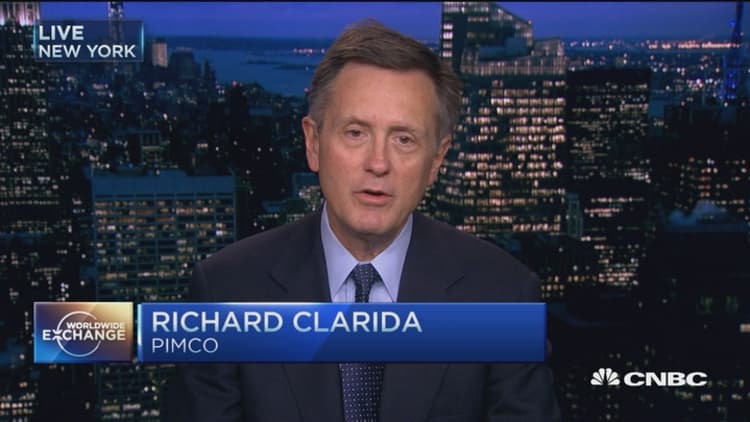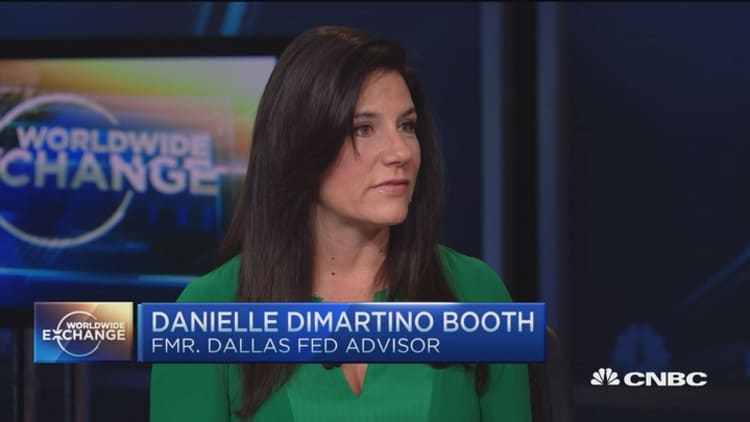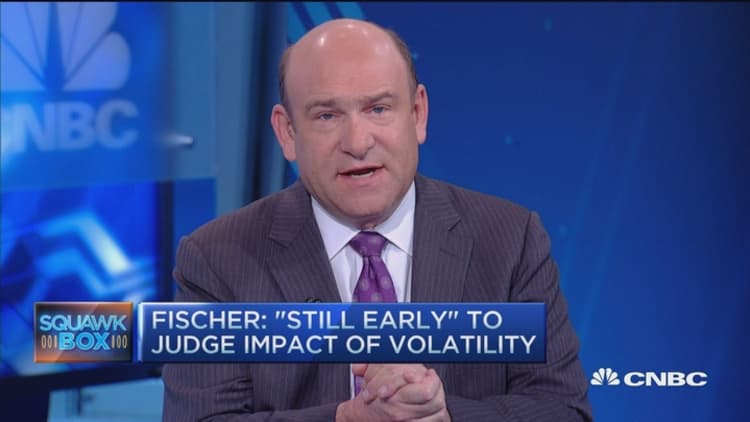


Global uncertainty may not be a good thing for U.S. equities markets and exports, but it is driving investors toward U.S. bonds, according to Richard Clarida, global strategic advisor and managing director at Pimco.
"As you have uncertainty about China and the oil market, and about global recovery, money flows into the U.S.," Clarida told CNBC's "Worldwide Exchange" on Wednesday. "U.S. Treasurys are the place to be."
But Clarida advised investors to avoid shorter maturities, which price in no further rate hikes this year. He expects the Federal Reserve to leave interest rates unchanged at its upcoming March meeting, and he is pointing investors to the belly of the curve at the five- to seven-year point.
"I think March is off the table," Clarida said. "It will depend on the data but I think the Fed's baseline is that they'll hike a couple more times this year."
Economic data has been mixed, and Fed Vice Chair Stanley Fischer said Tuesday that it's too early to assess the impact of recent market volatility. Officials "simply don't know" what the course of action is at their next meeting and the Fed is looking at negative rates, although there are no definitive plans to use them, according to Fischer.
In reaction to the comments, former Dallas Federal Reserve advisor Danielle DiMartino Booth said the U.S. is in a unique situation to avoid negative interest rates. Our financial system infrastructure, she told CNBC's "Worldwide Exchange" in a separate interview, makes a downward move in rates unlikely.
"We have a huge money market fund industry that you can't willy-nilly put out of business," DiMartino Booth said. "It's not as practical as it might be in some other countries."
Booth cited countries like Denmark that have used negative interest rates, and said lenders there found a way to pass the cost to households in the form of higher borrowing and mortgages.
"Those are the kind of things that worry me, in our banking system especially, that banks aren't just going to sit back and let their profits take a haircut standing still," DiMartino Booth said.
Oil remains tightly correlated to the health of markets and interest rates, especially in DiMartino Booth's home state of Texas. She described driving around high-end real estate areas flooded with for-sale signs.
Oil and gas companies are especially fragile and strapped with debt.
"The Fed left interest rates at zero bound for as long as they did so they were able to access an overabundance of debt," DiMartino Booth said. "That's really coming back to haunt them right now."
Economic data remains a key indicator for interest rates. DiMartino Booth mentioned the consumer confidence report out Tuesday, which didn't show a real change in people's plans to buy homes or cars despite low unemployment and more money in pockets from gas savings.
"Despite the fact that prices at the gas pump have fallen as much as they have, you have to wonder what is bothering the U.S. consumer right now," DiMartino Booth said.




